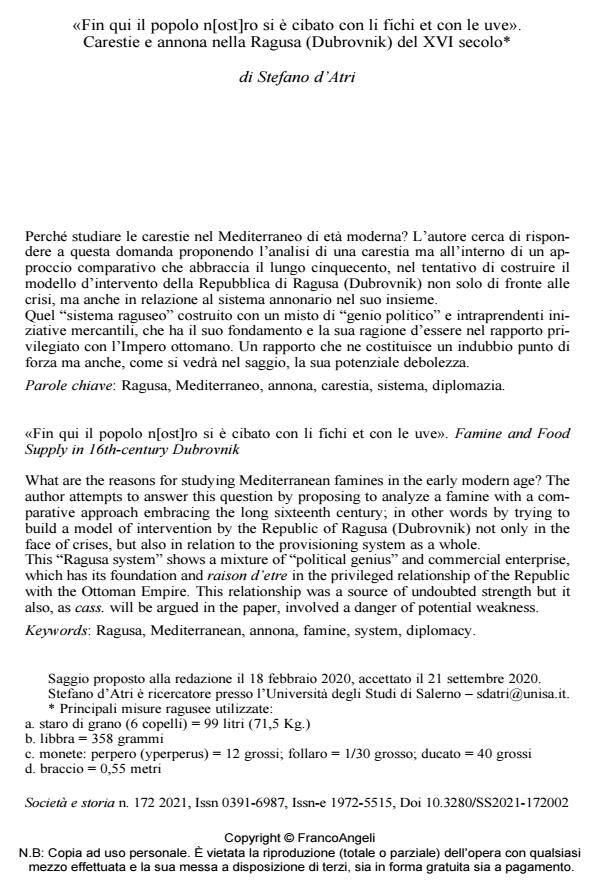«Fin qui il popolo n[ost]ro si è cibato con li fichi et con le uve». Famine and Food Supply in 16th-century Dubrovnik
Journal title SOCIETÀ E STORIA
Author/s Stefano d’Atri
Publishing Year 2021 Issue 2021/172
Language Italian Pages 27 P. 259-285 File size 193 KB
DOI 10.3280/SS2021-172002
DOI is like a bar code for intellectual property: to have more infomation
click here
Below, you can see the article first page
If you want to buy this article in PDF format, you can do it, following the instructions to buy download credits

FrancoAngeli is member of Publishers International Linking Association, Inc (PILA), a not-for-profit association which run the CrossRef service enabling links to and from online scholarly content.
What are the reasons for studying Mediterranean famines in the early modern age? The author attempts to answer this question by proposing to analyze a famine with a comparative approach embracing the long sixteenth century; in other words by trying to build a model of intervention by the Republic of Ragusa (Dubrovnik) not only in the face of crises, but also in relation to the provisioning system as a whole. This "Ragusa system" shows a mixture of "political genius" and commercial enterprise, which has its foundation and raison d’etre in the privileged relationship of the Republic with the Ottoman Empire. This relationship was a source of undoubted strength but it also, as cass. will be argued in the paper, involved a danger of potential weakness.
Keywords: Ragusa, Mediterranean, annona, famine, system, diplomacy
Stefano d’Atri, «Fin qui il popolo n[ost]ro si è cibato con li fichi et con le uve». Carestie e annona nella Ragusa (Dubrovnik) del XVI secolo in "SOCIETÀ E STORIA " 172/2021, pp 259-285, DOI: 10.3280/SS2021-172002